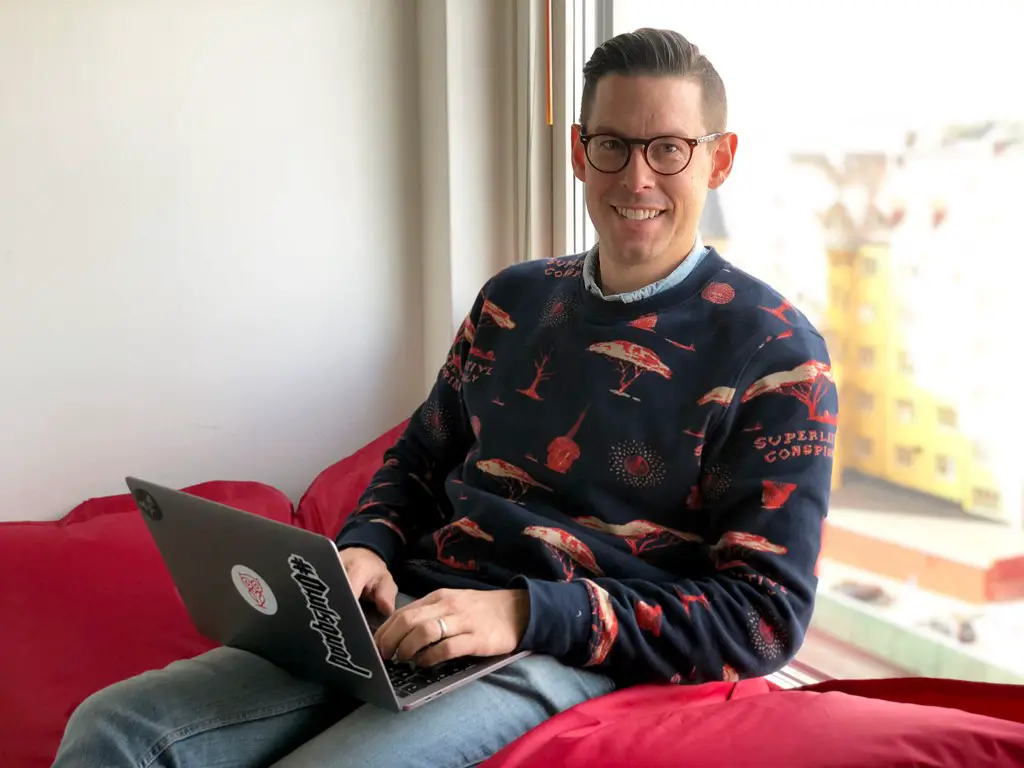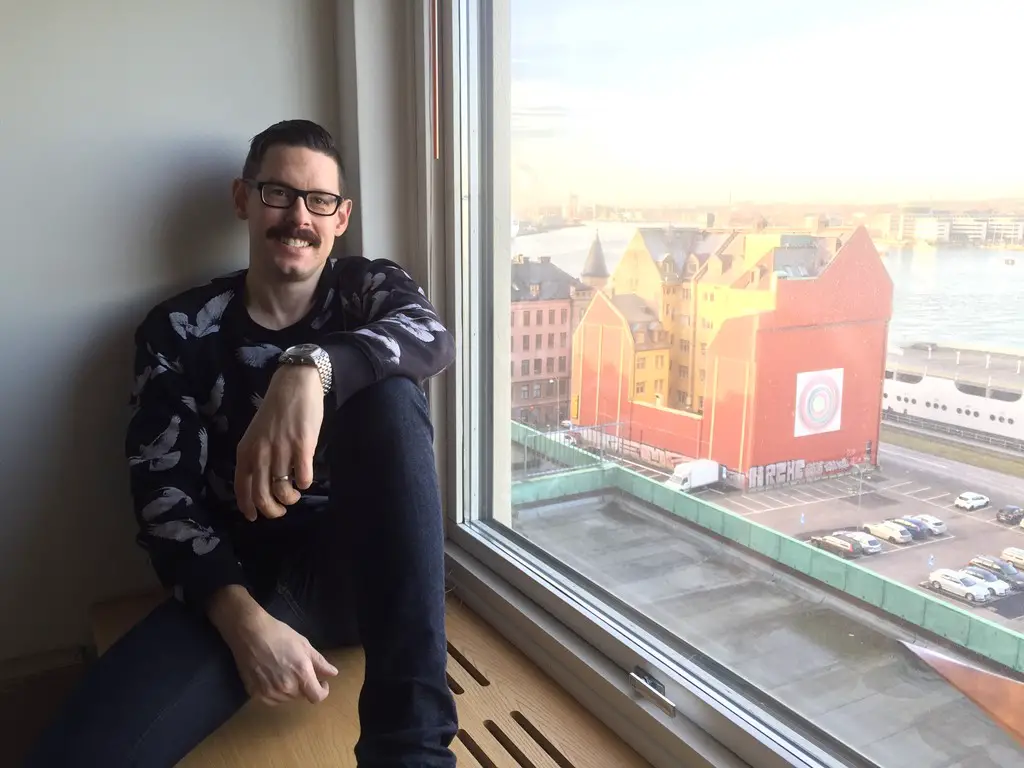David Brudö, Remente's CEO: 'If You Want to Last in the Game, Look at Your Mental Health and Well-Being Just like an Athlete'
 David Brudö is the CEO and co-founder of Remente, a mental health and personal development platform.
David Brudö is the CEO and co-founder of Remente, a mental health and personal development platform.
David went from being a skateboarder in his teens, to working as a substitute teacher, a breakdance instructor, and then studying commercial law, before he became a successful entrepreneur and angel investor. He previously co-founded several successful Swedish companies: Smoltek, a pioneering carbon nanotechnology for advanced semiconductor packaging (listed), Fyndiq – Sweden’s leading bargain shopping marketplace, and Destly – the first online travel private sales site in Sweden (acquired by TravelBird).
David had his own share of mental health struggles, as he has battled burnout and depression, while trying to maintain a healthy balance in his own life, and so Remente was also born out of his own needs. Despite the fact that mental health concerns are cited among the most common reasons for sick leave, impacting individuals, businesses and society altogether, there was no resource dedicated solely to preventive measures for mental wellbeing.
Think of Remente as your personal coach: it helps you take charge of your life, both on a personal and professional level. By combining psychology with brain and mental training, the app provides tools that help us thrive and reach full potential, complete goals, and lead a healthier lifestyle. You can create plans and life-changing habits, keep track of your objectives, your mood and behaviors, stay focused, manage stress and, overall, understand yourself and your emotions better.
The Gothenburg-based company is based on a freemium model: most features are free to use, but there’s also a Premium option. It was launched in 2011 and currently serves over 1 million people across the globe, supporting them on their path to self-improvement.
We wanted to learn from David more about how he handles stress, burnout, the need to control everything, what advice he’d give to a startup founder who always leaves sleep and healthy habits at the end of their priority list, and other topics related to mental health and productivity. And, also, of course, the books that had the biggest impact on him! Keep on reading – we all have a lot to learn from David.
What books had the biggest impact on you? Perhaps changed the way you see things or dramatically changed your career path.
- Good to Great by Jim C. Collins
- Influence: The Psychology of Persuasion by Robert B. Cialdini
- Drive: The Surprising Truth About What Motivates Us by Daniel H. Pink
Was there a moment, specifically, when something you read in a book helped you? Can you tell us about it?
What really struck me when reading Good to Great was the importance of strength-based leadership and focusing on the strengths/positives instead of being problem-oriented, and how this is linked to success. This is specifically important when you are an entrepreneur because generally speaking you have larger ambitions than you have resources. Given the success rate of startups, the odds are statistically against you. So if you have a strength-based mindset, focus on the things that work, and understand why and expand on that, you have the keys to survival and success.
[sc name=”subscribe”]
We’re interested in finding out more about your reading habits. How do you make time for reading? What format do you prefer? Do you have a note-taking system?
I usually read in bed as a way to wind down. I use book subscription apps so I almost read exclusively on the phone, which has its downsides in terms of having a distracting digital device in bed. But the upside is that I don’t disturb my significant other with reading lights, and can access almost any book at any time. Another benefit of reading on a digital device is that it’s very smooth to highlight important sections to transfer into notes.
What fundamental skills do you believe should be learned in schools, to prepare the next generations for a future of work characterized by uncertainty and instability?
Soft skills and mental resilience more than anything else. Schools of today need to catch up with the world around them. Mental health issues are affecting children of increasingly younger ages, and more students are tackling mental health problems. Schools, societies, individuals, and businesses need to take responsibility in fostering sustainable individuals from a mental health perspective, and that process starts with training the mind.
Book-talk with David Brudo, CEO of mental health app @rementecorp: 'If you want to last in the game, look at your mental health and well-being just like an athlete.' Share on XIs there any way that you try to handle information overwhelm, manage social media noise and regain focus? What self care limits have you built in your everyday schedule?
I’ve removed email notifications and other types of notifications that might distract my attention. In addition, I’ve more or less signed off from social media, and only check and update it occasionally. When focusing on a task, I use a focus timer and sometimes turn on flight mode on my phone in order to make sure I don’t get distracted. I also make sure not to read and respond to notifications in bed so that my mind doesn’t begin to spin and focus on work when I really should be winding down.
Entrepreneurs know they should sleep more, eat better, exercise, meditate and so on, but many of them still don’t, and today’s society celebrates those who sacrifice themselves and their health for their jobs. What’s an ironclad argument you’d give to a founder to keep up with their personal wellness habits?
This is a typical example of the battle between the logical and emotional parts of the brain. We know what we should do, but still we don’t do it, because the brain is more emotional than logical, and seeks the path with the least resistance and instant gratification. That’s why we stick with old habits even if they aren’t beneficial for us in the long-term, because it feels good and makes sense right now, as that is what we emotionally can comprehend.
As an entrepreneur, you are in the extreme sports of business life. Your job is to break mental barriers and do things that others won’t do, or you do it much better. Hence, your main asset is your mind, so you should make sure to treat it as such. If you want to last in the game, look at your mental health and well-being just like an athlete. Train your mind to perform and give it proper rest because you cannot go full throttle 24/7. I usually tell fellow entrepreneurs about my own story of depression and burnout, and give examples of how working smart can be more effective than working hard.

What small daily habit you feel that it makes the biggest difference in your life?
Connecting my daily planning with long-term goals. This increases my productivity and reduces stress, by giving the brain a sense of direction and purpose. I know where I am heading, and can mix proactive and meaningful activities that take me towards the goals that matter, together with more reactive activities such as administration and daily chores.
Any tips that you’d give to first-time entrepreneurs on how to beat the need to control everything?
The only thing you can control is yourself and your reaction and actions to what is going on around you. By understanding that you are in charge of your life, you give yourself both the responsibility and the possibility of controlling your life. Things outside of this realm you cannot control. You cannot control the weather, the economy, or what customers, competitors or investors say or do.
As a first-time entrepreneur, it is easy to think that everything is equally important and therefore needs to be controlled. When facing a lot of daunting tasks that you feel you need to control, ask yourself, is this really important? Is this truly a priority? Why is it so and can I control it? Don’t be afraid to let go of things you can’t control and continuously reflect if this really needs your focus right now. Also, if possible, delegate to colleagues, partners and the network you have around you. Don’t make your venture a one-man show if there are people you work with.
To understand what it is you can influence and should focus on, Byron Katie has developed a simple method that answers the question: “Whose business are you in?”
The answer could be one of the three:
My Business
Their Business
God’s Business
My Business
My Business
Everything that you can affect, how you choose to interpret others and your surroundings.
Their Business
What other people think, do and act upon. Things you cannot directly impact. (Byron Katie calls this “Your Business”, but we changed it to “Their” because of risk for confusion)
God’s Business
Mother Nature – the weather, earthquakes, floods, war and peace. Things you have no control or influence over whatsoever.
Stay in My Business
Much of our stress and worries come from mentally not being in our own business. If you are thinking, “People drive like idiots”, “You should be on time”, ”No one tells me they love me”, you are in Their Business. If you worry about global warming, or feel down because it’s raining, you are in God’s Business.
The more you focus on things that you can affect and influence (My Business), the more control and confidence you will experience. The next time you are feeling stress, worry or discomfort, ask whose business you’re mentally in. By asking yourself this you can return to your own business.
Links where you can follow David Brudö and find out more about his projects:
- Remente
- Connect with David on LinkedIn | Instagram | Twitter
- A great interview with David, from Authority Magazine interview with David: ‘The CEO of Personal Development App Remente Delivers 5 Clear Ways to Improve Your Relationship With Tech‘
- About Remente in Forbes: ‘How This Swedish Entrepreneur Is Addressing The Mental Health Crisis In The Startup World‘
All books mentioned by David Brudö in our interview:
- Good to Great, by Jim C. Collins
- Influence: The Psychology of Persuasion, by Robert B. Cialdini
- Drive: The Surprising Truth About What Motivates Us, by Daniel H. Pink